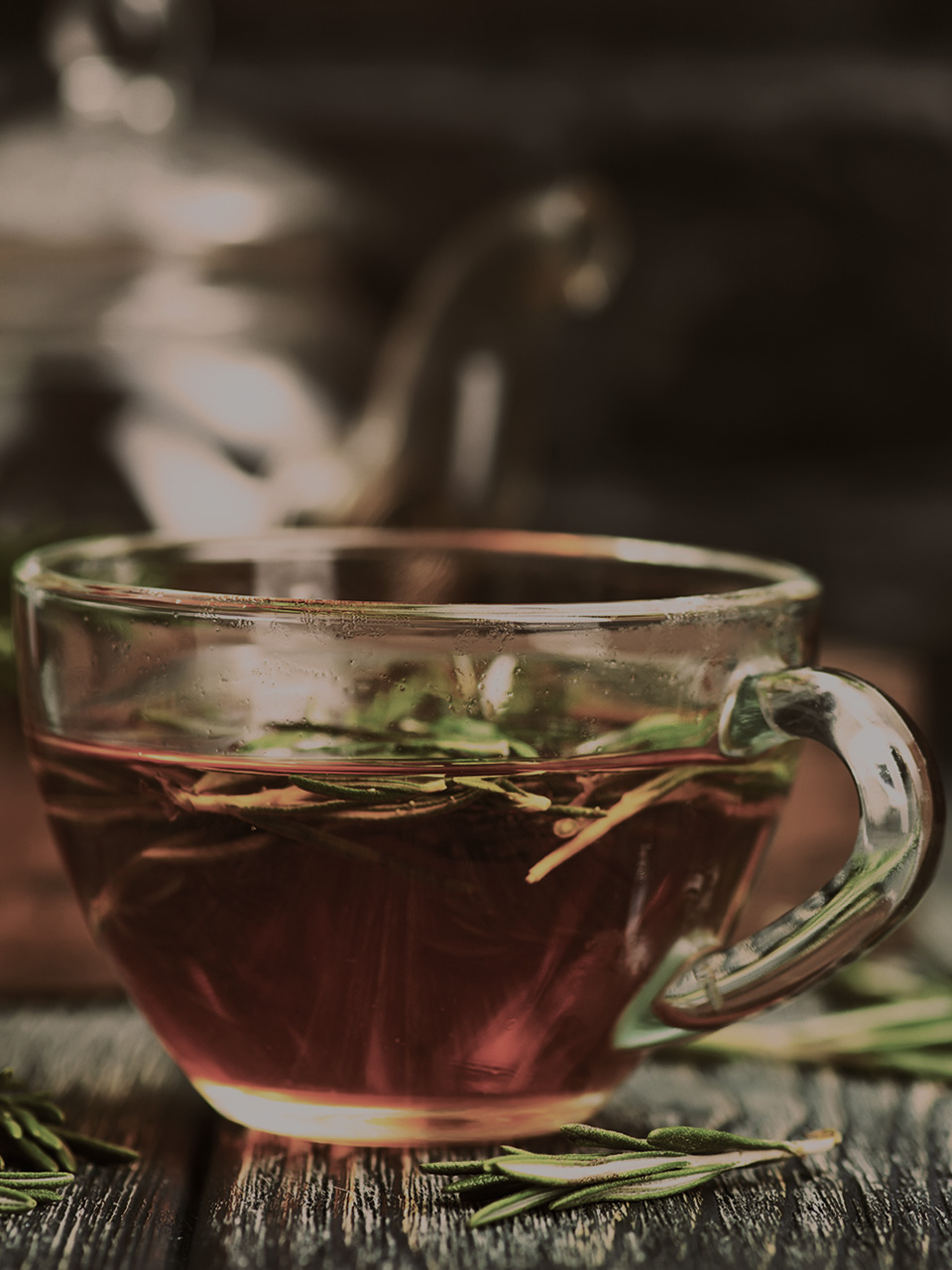
Tap to Read ➤
Brew-up Your Health With Rosemary Tea
Rajib Singha


A native to the Mediterranean region, the rosemary herb is a member of the mint family. Here we discuss the various health benefits of the rosemary tea.

Scientifically known as Rosemaryinus officinalis, the rosemary is a popular ornamental herb that is also known for its culinary use. The herb bears fragrant, evergreen needle-like leaves, and flowers with varying colors such as white, pink, purple or blue.

Throughout the centuries, not only has this herb been used in various cuisines, and decoration but it has widespread applications in the field of medicines too. The rosemary generally grows in the form of a dense shrub, attaining a height of 2-4 feet and even, at times, up to 7 feet. The leaves of the rosemary have a linear make and are 1-2 inches in length.
Health Benefits of Drinking Rosemary Tea

✿ The rosemary tea is believed to improve memory and concentration. This herb increases blood circulation to the brain thereby improving brain function.

This may be the reason some people believe in the practice of placing springs of the rosemary herb in the hair of students whose exams were up and running. If you have ever read "Hamlet", one of Shakespeare's greatest works in literature, you must have come across the line "There's rosemary, that's for remembrance."

✿ According to the findings of the Cancer Research Laboratory at Rutgers, antioxidants found in rosemary have anti-cancer properties, and may reduce the formation of cancer-causing compounds in the body. This does not advocate the fact that drinking rosemary tea would actually prevent cancer.

However, it is for certain that drinking the tea daily may cut down the risk of contracting the disease.

✿ Rosemary tea improves digestion, and helps manage conditions like diarrhea, constipation, bloating, and even the symptoms of irritable bowel syndrome. The antispasmodic property of the herb also helps relieve intestinal spasm.

✿ Topical use of the rosemary tea is also beneficial. The herb helps stimulate hair follicles and reduces hair loss. The tea also nourishes the hair and promotes hair growth. Other common problems of the hair such as dandruff, dry scalp, etc., can also be managed with the help of this herb.

✿ Another beneficial method to use the rosemary tea is during bath. Add about 5-6 cups of the tea in warm bathing water, and soak for 10-15 minutes or until the water gets cold. The antibacterial property of the herb helps manage skin irritation, and it also soothes the skin.

✿ Rosemary tea, apart from imparting the mentioned benefits, also:
- Reduces body odor
- Stimulates blood circulation
- Reduces fever
- Relieves headache
- Reduces the severity of asthma attacks
- Reduces swelling
- Treats minor cuts

How to Make Rosemary Tea
The recipe is no different from that of any other ordinary brew.

✲ Get 1 teaspoon of rosemary.

✲ Bring 8 ounces of water to boil.

✲ Add the herb to the water and let it steep for 5-10 minutes.
✲ The more the solution is let to steep, the stronger it will become.
✲ The more the solution is let to steep, the stronger it will become.

✲ Strain the tea into a drink pitcher, and add honey and lemon to taste.

Speaking of side effects of rosemary, there aren't any, until the tea or any of its products are taken in recommended doses. There have been cases where large quantities of the rosemary leaves have known to trigger vomiting, spasms, and pulmonary edema (fluid in the lungs).

This could be due to the volatile oil content of the leaves. The herb may also interact with certain drugs and is not considered suitable for people suffering from high blood pressure, ulcers, Crohn's disease, or ulcerative colitis. But, in general, it is little known to cause any harm.

Disclaimer: Although herbs are natural, they are not completely free of side effects. Some of the benefits of rosemary tea mentioned earlier have not been scientifically studied or clinically tested in humans.Thus, it is important to exchange advises with your healthcare provider or a doctor before you consider any such herbal treatment for any ailment.

This is purely meant for informative purpose only, and in no way, should be substituted for the advise or guidance of a professional medical expert.